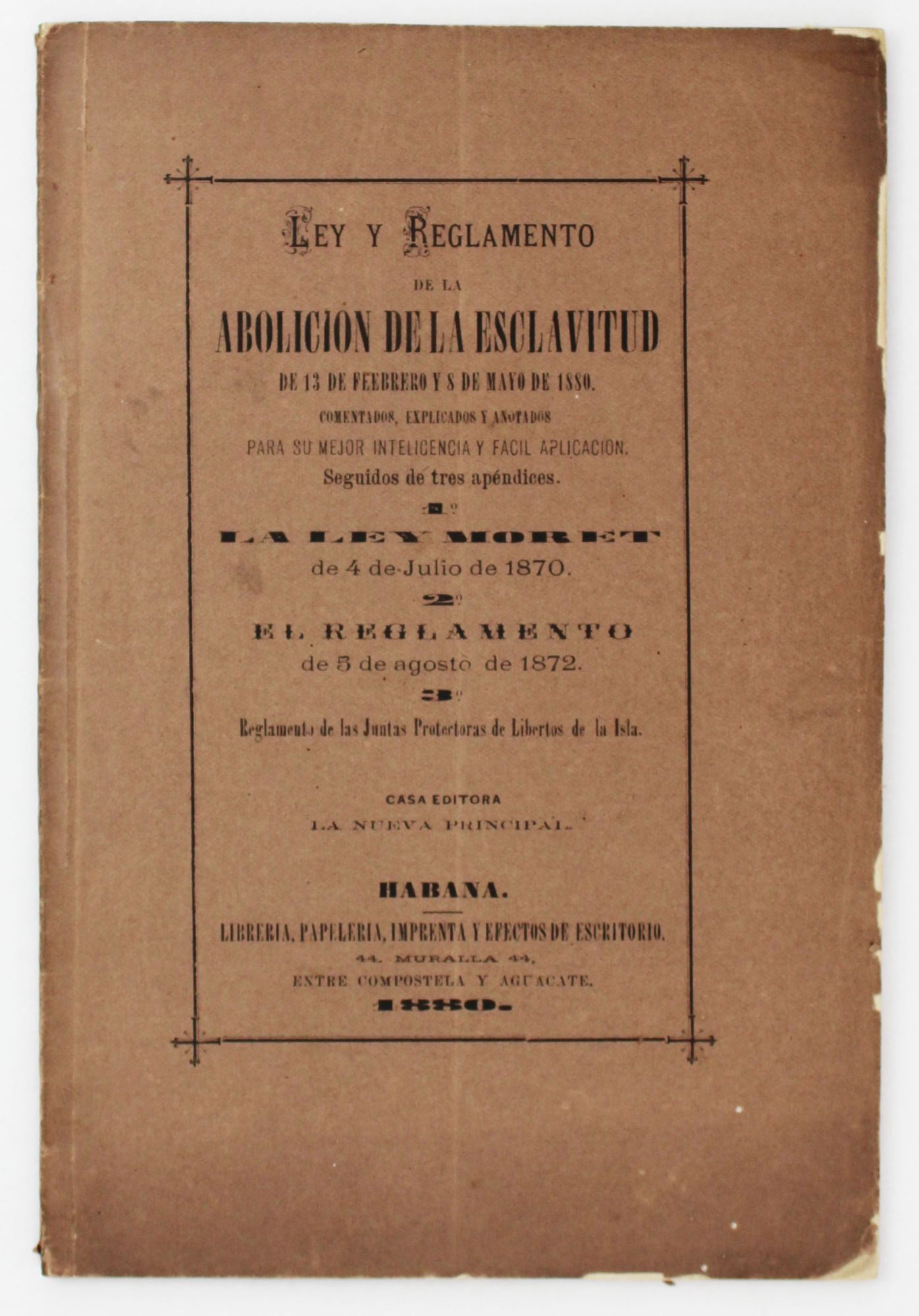Ley y Reglamento de la Abolicion de la Esclavitud, de 13 de Febrero y 8 de Mayo de 1880..
- SIGNED
- Habana , 1880
Habana, 1880. About very good.. 74,[2]. Original printed wrappers. Light chipping and wear at wrapper edges. Moderate tanning internally. A rare and important Havana imprint of an 1880 Spanish law that outlawed the slave trade in Cuba and established a system of gradual emancipation for enslaved people on the island. Slavery was long an established institution in Cuba, providing labor to support the sugar cane plantations. Cuba stopped officially participating in the slave trade in 1867 but the institution of slavery was not abolished on the island until October 7, 1886. Several laws and regulations against slavery started to appear as early as 1870, and helped to pave the way for total abolition.
The law printed here, dated May 8, 1880, set forth the "patronato" system, under which slaves were entered into an eight-year period of "tutelage" before finally being freed. The regulations stipulated that laborers be given minimal wages and improved conditions, but the system still amounted to long-term indentured servitude. The law also granted some legal rights and recourse to slaves in dispute with plantation owners, the patronos, and established tribunals at which such cases could be mediated. The patronato system stayed in place for six years, before it was obviated by the Spanish crown's proclamation of complete emancipation in 1886. This law was published by the official government printer in Cuba, but this imprint was issued by a local newspaper and publishing house, La Nueva Principal, and includes the texts of prior anti-slavery laws of 1870 and 1872. Very scarce; OCLC locates copies at four institutions, Berkeley, Miami, Florida, and the L.A. County Law Library.
The law printed here, dated May 8, 1880, set forth the "patronato" system, under which slaves were entered into an eight-year period of "tutelage" before finally being freed. The regulations stipulated that laborers be given minimal wages and improved conditions, but the system still amounted to long-term indentured servitude. The law also granted some legal rights and recourse to slaves in dispute with plantation owners, the patronos, and established tribunals at which such cases could be mediated. The patronato system stayed in place for six years, before it was obviated by the Spanish crown's proclamation of complete emancipation in 1886. This law was published by the official government printer in Cuba, but this imprint was issued by a local newspaper and publishing house, La Nueva Principal, and includes the texts of prior anti-slavery laws of 1870 and 1872. Very scarce; OCLC locates copies at four institutions, Berkeley, Miami, Florida, and the L.A. County Law Library.


